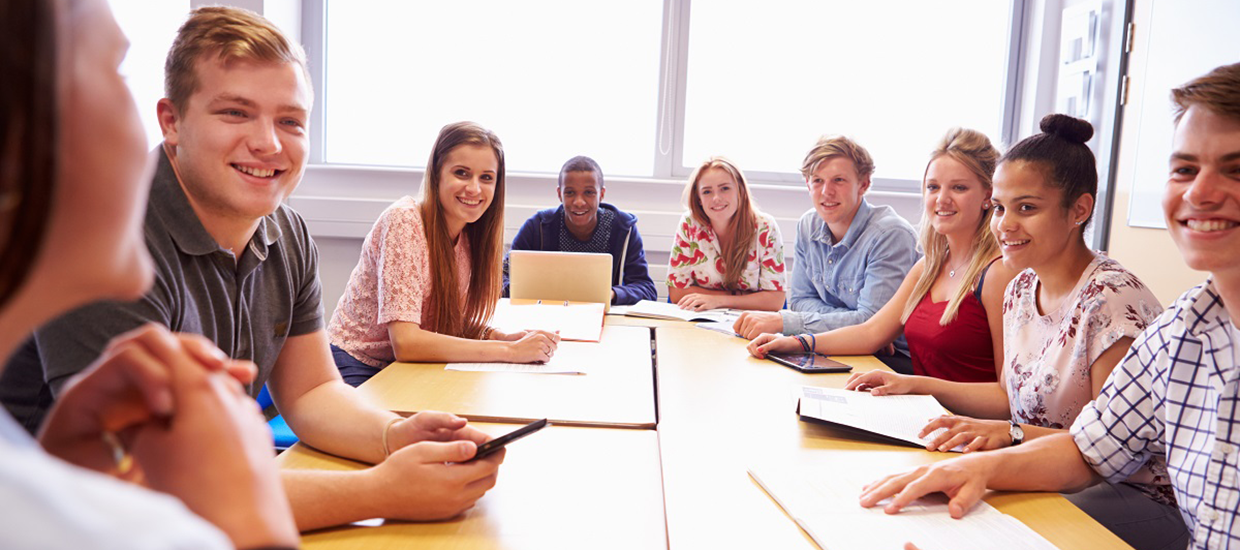FLC Fellowship
The University regards FLC membership as an acknowledgment of excellent, innovative, and effective teaching. To guide and empower FLC fellows in their journey to revise a particular course, this initiative provides key opportunities to reflect, collaborate and innovate with peers across the university.
In support of the University of Miami’s Quality Enhancement Plan, the theme for this Faculty Learning Community program is Learning through Discussion and Dialogue. Participants will meet seven times over the course of the Fall 2021 semester to engage in facilitated sessions organized around important questions related to incorporating discussion-based teaching methods into their courses.
The FLC program comprises three distinct cohorts, each exploring a different discussion-based teaching method: Harkness Method, Flipped Learning, and Problem-based Learning. As part of the application, you will be asked what your preferred format is:
- Harkness Method: In the Harkness method, students sit at an oval table, which promotes discussion and collaboration. Students initiate and lead a discussion about the assigned material, exchanging views and learning with and from one another. Faculty serve primarily as facilitators who help to ensure that all students speak and that the learning does not veer off track.
- Flipped Learning: In a flipped learning course, students access course content such as readings, recorded videos, and podcasts before coming to class. Then class time is used for activities such as discussing case studies, working on problem sets, debating issues, and other forms of active learning.
- Problem-based Learning: In problem-based learning, students learn through engaging in solving problems based on complex, real-world situations. Generally, students are not initially provided with all of the information needed to solve the problems, and they work in groups to discuss, identify, find, and use appropriate resources. Problem-based learning QEP courses are expected to have a significant emphasis on PBL and student-driven discussion.
Fellows will receive up to $4,000, which may be used to support a student assistant. As an alternative, if the relevant dean and department head permit, Fellows may be able to use the $4,000 to help cover the cost of a one-course buyout during the Spring 2022 semester. In addition, each Fellow will have access to a $2,000 fund that can be used for research, professional-development activities, and equipment. These funds will be available through the end of the Spring 2022 semester and will not roll over to the next fiscal year.
Application Requirements
Please have the following information and documents ready to upload prior to starting the application.
A complete application must be submitted on or before Friday, April 16, 2021.
- Personal/contact information.
- Your preferred discussion-based teaching format (Harkness, Flipped Learning, or Problem-based Learning)
- Short responses regarding your interest in teaching and innovation.
- The current syllabus of the course you are interested in teaching in a discussion-based format (will be uploaded).
- Your current CV (will be uploaded).
- Completed Academic Leadership Acknowledgement Form signed by your department chairperson (will be uploaded).
Selection Criteria
The Faculty Learning Community is open to all full-time University faculty who are engaged in undergraduate teaching. Criteria for selection include school and departmental support, interest in exploring and integrating discussion-based teaching, commitment to faculty development, openness to collegiality and exchange of new ideas, potential contributions to the community, and high level of interest in developing, implementing and sustaining innovative techniques to enhance teaching and learning.
Contact Us
If you have questions about any of the above, please contact aaronbroyer@miami.edu.





